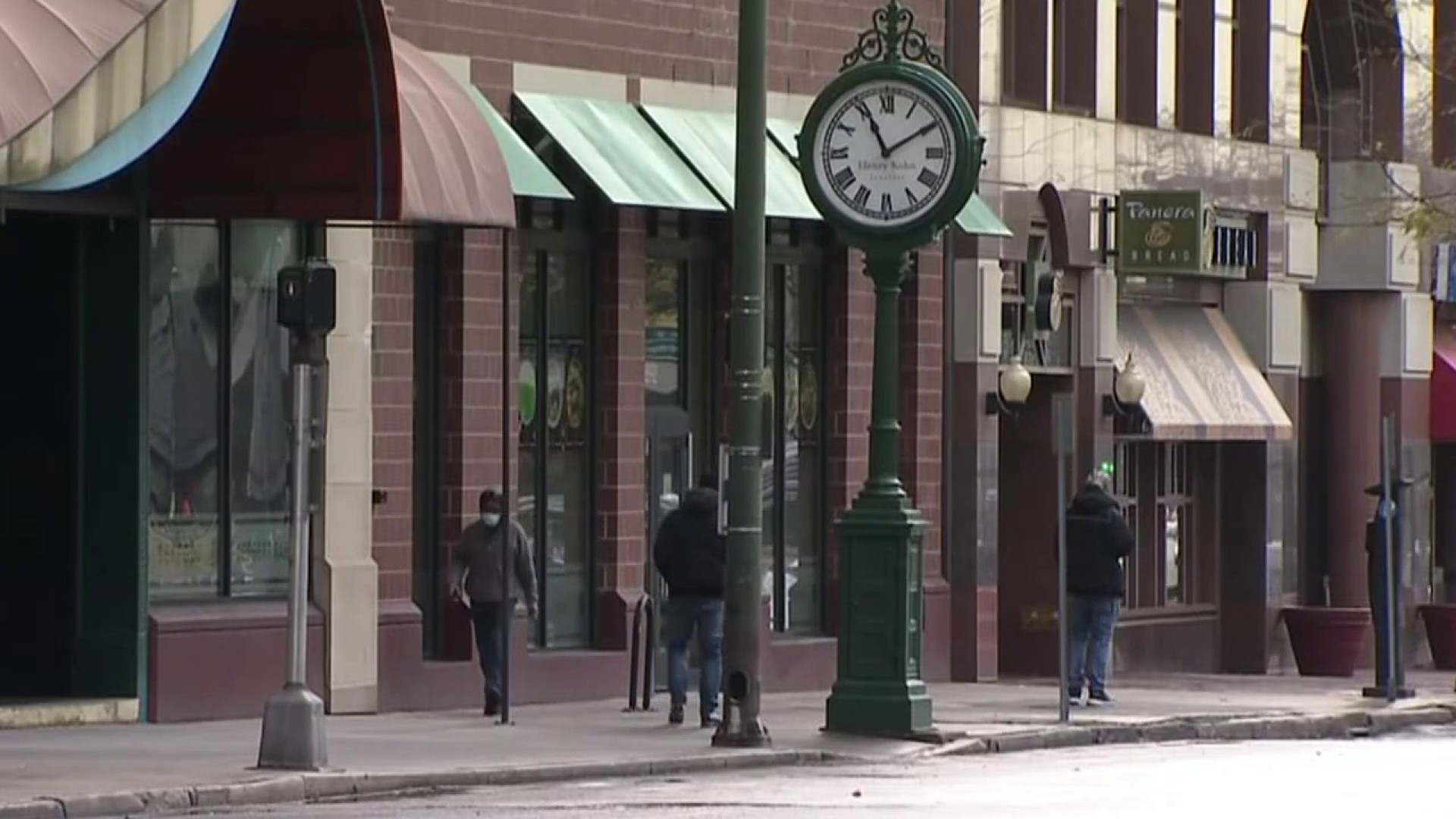Despite the deep divisions in our House of Representatives, Congress actually got together and compromised this week to keep the government running.
The short-term resolution will keep part of the government going through Jan. 19. But will that bipartisanship also be equally as short lived?
NBC Connecticut's Mike Hydeck spoke with Congressman Jim Himes about what's happening moving forward.
Mike Hydeck: So first up, the new Speaker of the House, Mike Johnson, worked with Democrats to get these continuing resolutions done. His predecessor was kicked out for doing the exact same thing. What's your impression of Johnson, and is this a one and done sort of situation for him, too?
Get Connecticut local news, weather forecasts and entertainment stories to your inbox. Sign up for NBC Connecticut newsletters.
Jim Himes: Yeah, it's a really interesting question. I mean, I think the quick answer to your question is that, you know, Kevin McCarthy had alienated for whatever reason, you know, 24-ish members of his Republican Conference. Now, you know, what was it, eight of them, ultimately decided to kick him out. But you know, he had made a number of enemies over time, right? That is not true of Mike Johnson. Now, the scary thing is that Mike Johnson, in passing a clean CR, which people should understand CR, what does that mean? That simply means we're going to give ourselves another month to negotiate the appropriations bills, which are the federal budget. And the problem is this. So he passes that clean CR. And as you point out, that's what got Kevin McCarthy in trouble the last go round. He does it with almost unanimous support of the Democrats, which is a problem for some Republicans. They couldn't pass it on their own. All he was doing was keeping the government open and giving us another 30 days. But that is an unacceptable thing to a good chunk of the Republican majority. They wanted to say, okay, we'll keep the government open. But we also want to slash spending by 5%, or 10%, or we want to fix the border. Again, this is simply just giving us a little bit more time. And the reason I walk you through all of that is that that problem is not going away. You know, Mike Johnson has a good chunk of his Republican majority that is going to want things that are simply going to be unacceptable, frankly, to the American people, but also to a Democratic Senate and a Democratic president. So the day of reckoning has been postponed.
Mike Hydeck: So steep cuts are on the table for them. Let's talk about what's ahead moving forward. So Congress has to consider border security, like you just mentioned, funding our own government with spending plans, foreign aid packages for Ukraine, Israel, possibly Taiwan. Let's start with the border. What happens there? They are going to demand more money towards the border. Democrats are on board with doing something about the border. But where do we start?
Jim Himes: Yeah, that's right. I mean, I really think there's two or three things that must happen. The budget obviously needs to get done. And then yes, we need to put together a package to support Israel, which of course, is in the fight of its life right now, to support Ukraine, which is also in the fight of its life right now. And to do some other things, humanitarian aid for the Middle East. And what the Republicans are saying is that, that's fine, we'll let that go. Half of them don't like Ukraine aid. But that's a whole other conversation. But we also want to make some progress on the border. That's totally fine. You're hearing it from this Democrat. If what we need is more resources to handle the influx of undocumented aliens across the border, I'm all in for that. Now, something tells me that they're going to ask for things that look a little bit more like the Trump immigration policy, which may get us into an argument. But generally speaking, you know, thinking about trying to do better on the border is totally fine. That will, of course, be the subject of negotiation through much of December.
Face the Facts
Face the Facts with NBC Connecticut goes beyond the headlines, asking newsmakers the tough questions, giving an in-depth analysis of the big stories.
Mike Hydeck: What would you like to see done on the border? They're talking about, look, we need to dig deep because they're going to dig tunnels under this wall. Should we extend the wall? What would you like to see, as far as a compromise, to try to get something done?
Jim Himes: Well, I think there's short-term needs and longer term needs. And I think, you know, it's fun for everybody to talk about the short term needs. I mean, are there areas where more wall would help? There may be. There's a lot of wall down there already. In highly dense urban areas, walls work. Now 700 miles from nowhere, walls are probably a waste of money. What we do need is more of an administrative process, judges that can correctly process people's claims for asylum. And if those claims are good, give them asylum; if they're not good, send them out. So in the near term, yes, we need better enforcement, more enforcement, we need better judges and more judges. But really, what never gets talked about is the long-term issue. Look, we could build as big a wall, as much as you want, and have as many judges. As long as economic conditions and violence are what they are in Central and South America, in Venezuela, people are going to find a way to get in. So I know that it sounds like, you know, good government stuff. But we really ought to be addressing the underlying causes by trying to help create peace in Central America, try to create economic prosperity in places like that, deal with Venezuela in such a way that you don't have hundreds of thousands of Venezuelans fleeing the country. That's how at the end of the day, in the long run, we will solve this problem.
Mike Hydeck: So let's talk about the foreign aid packages. It seems Democrats wanted to link them all, Ukraine, Israel and Taiwan. Do they all get linked, do you think? Some Republicans are saying look, we cannot link them all well. What's your opinion on that?
Jim Himes: Well, I mean, let's talk about this the way it really is. Pretty much all of the Senate Republicans and all of the Senate Democrats, not all of them, but pretty much all of them, would like to see them linked. Half of the Republicans in the House of Representatives would like to see them linked. What you have is about 100 members of the Republican conference in the House of Representatives who don't want to do Ukraine aid. Now, ordinarily, you would say in a body of 435 people, 100 folks don't get their way. But, you know, in today's Republican majority, eight people can get their way. And so I would tell you that it is going to be a struggle. But the way to get this done, because this is what the vast majority of Congress wants, is to put together the Ukraine aid package, the Israel package, the humanitarian aid package, and pass it as one vote. Boom, we're done. We're onto the next thing.
Mike Hydeck: Got about 30 seconds. One last question. West Virginia Senator Joe Manchin, independent run for president. Your thoughts?
Jim Himes: Well, Joe Manchin has the right to run for president if he wants to, obviously. My politics are a little different from Joe Manchin's. But look, I admire what he's done in much of his career. If nothing else, the fact that he allowed the Democratic Party to retain control of the Senate, he ought to be thanked for that. I have no idea whether he's going to run for president or what the effect of that would be. We could be in for a rollicking presidential in 2024, with the candidates that are out there today, and I have no idea how Joe Manchin throwing his hat in would would necessarily affect that.



